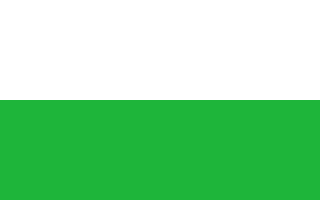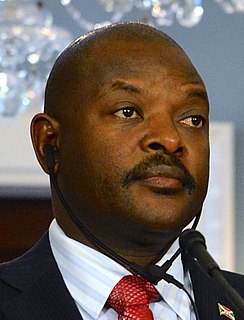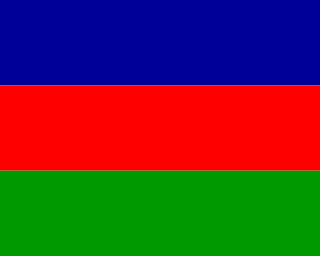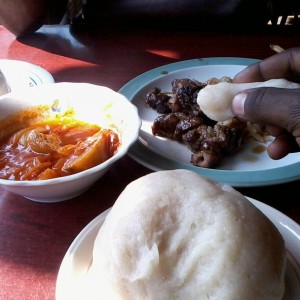
Burundi is one of the few countries in Africa, along with its closely linked neighbour Rwanda among others, to be a direct territorial continuation of a pre-colonial era African state.
The Hutu, also known as the Abahutu, are a Bantu ethnic or social group native to the African Great Lakes region of Africa, primarily area now under Burundi and Rwanda. They mainly live in Rwanda, Burundi, and the eastern Democratic Republic of the Congo, where they form one of the principal population divisions alongside the Tutsi and the Twa.

The Front for Democracy in Burundi is a Hutu progressive political party in Burundi.

Elections in Burundi gives information on election and election results in Burundi.

Pierre Nkurunziza is a Burundian politician who has been President of Burundi since 2005. He was the Chairman of the National Council for the Defense of Democracy-Forces for the Defense of Democracy (CNDD-FDD), the ruling party, until he was elected as President of Burundi.

The Kingdom of Burundi or Kingdom of Urundi was a polity ruled by a traditional monarch in modern-day Republic of Burundi in the Great Lakes region of East Africa. The kingdom, majority ethnic Hutu, was ruled by a monarch from the Tutsi ethnic group with the title of mwami. Created in the 17th century, the kingdom was preserved under European colonial rule in the late 19th and early 20th century and was an independent state between 1962 and 1966.

The Rally for the People of Burundi is a political party in Burundi. It was headed by Ernest Kabushemeye, until his assassination in 1995, since when Balthazar Bigirimana has been party leader.

Parliamentary elections were held in Burundi on 10 May 1965, the first since independence in 1962. Voters elected the National Assembly, which had been reduced from 64 to 33 seats. They followed the assassination of Prime Minister Pierre Ngendandumwe on 15 January 1965, and were won by the ruling Union for National Progress.

The Burundo-African Alliance for Salvation (ABASA) is a small centrist, predominantly ethnic Tutsi political party in Burundi. It was founded by Terence Nsanze, the former Permanent Representative of Burundi to the United Nations in New York City in 1993. In 2005 Burundo-African Alliance for Salvation (ABASA) got 1 seat during the national elections in Africa. But on May 24, 2010 ABASA received just 26 votes and could not get seats.

The National Council for the Defense of Democracy is a political party in Burundi.

Parliamentary elections were held in Burundi on 4 July 2005. The result was a victory for the National Council for the Defense of Democracy – Forces for the Defense of Democracy (CNDD–FDD), which won 64 of the 118 seats in the National Assembly

The following outline is provided as an overview of and topical guide to Burundi:

Parliamentary elections were held in Burundi on 23 July 2010. The opposition parties boycotted the election after also boycotting the presidential election.

Presidential elections were held in Burundi on 28 June 2010. As a result of withdrawals and alleged fraud and intimidation, incumbent President Pierre Nkurunziza was the only candidate.

Burundi is situated in East Africa and has a territory full of mountains, savannas and agricultural fields, with forests in the surrounding of rivers and waters. Agriculture is spread on 80% of the country's surface and it especially includes coffee, tea, corn, beans and manioc. Due to these characteristics, the Burundi cuisine is very representative of the African culinary culture, as it includes beans, which are the staple of Burundi cooking, exotic fruits plantains, sweet potatoes, cassava, peas, maize and cereals, like corn and wheat. Profiteroles are also sometimes enjoyed as a rare delicacy. Not much meat is consumed in Burundi, because animal breeding is a secondary occupation; still, there are some dishes that include goat and sheep meat but cows are very sacred.

Parliamentary elections were held in Burundi on 29 June 2015. The vote had been initially set for 5 June 2015, alongside local elections, but it was delayed due to unrest. Indirect elections to the Senate occurred on 24 July.

Presidential elections were held in Burundi on 21 July 2015. President Pierre Nkurunziza ran for a third term despite controversy over whether he was eligible to run again. The opposition boycotted the vote, and Nkurunziza won re-election.

On 25 April 2015, the ruling political party in Burundi, the National Council for the Defense of Democracy – Forces for the Defense of Democracy (CNDD-FDD), announced that the incumbent President of Burundi, Pierre Nkurunziza, would run for a third term in the 2015 presidential election. The announcement sparked protests by those opposed to Nkurunziza seeking a third term in office.











